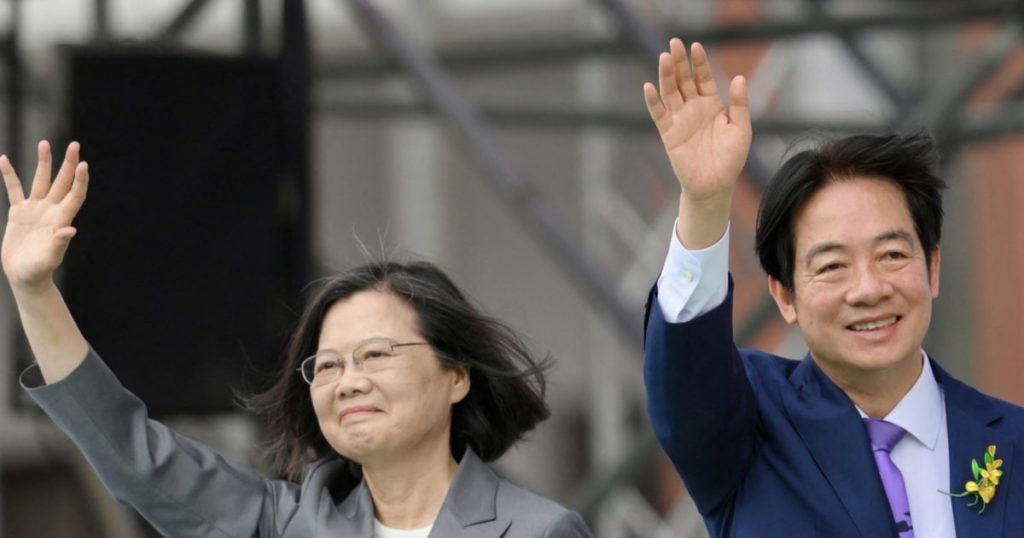Taiwan’s new president, Lai Ching-te, was sworn into office amidst tensions with China, which claims the island as its own territory. Lai is seen as a separatist and troublemaker by Beijing, who warned that voters in Taiwan’s recent election were choosing between war and peace. Lai rejects China’s sovereignty claims and asserts that only the people of Taiwan can determine their future. The United States, while not having formal relations with Taiwan, remains the island’s key international backer and arms supplier, approving billions of dollars in military aid. China has been increasing military and diplomatic pressure on Taiwan, with frequent military exercises and threats directed at the island.
Despite concerns from China, Taiwan’s policy towards China is unlikely to change under Lai’s administration due to several factors. The majority of the Taiwanese public supports maintaining the status quo regarding their relationship with China. Additionally, no party won a parliamentary majority in the recent election, limiting Lai’s ability to pass legislation. Recent outreach from former Taiwan President Ma Ying-jeou and legislators from the more Beijing-friendly opposition party have led to some renewed cross-Strait tourism and trade. The U.S. has made it clear that Taiwan should not cross any red lines that would alter the current status quo, further constraining potential changes in policy.
China has never set a specific timeline for unification with Taiwan, although reports suggest President Xi Jinping has ordered the military to be prepared for an invasion by 2027, the 100th anniversary of the People’s Liberation Army. Experts believe that Beijing is hesitant to engage in a military conflict as long as peaceful reunification remains a possibility. The dean of the School of International Studies at Nanjing University stated that a direct military conflict over Taiwan is unlikely during Lai’s presidency, as he is aware that pursuing de jure Taiwan independence would challenge mainland China’s bottom line. Despite the current tensions, the situation in Taiwan is expected to remain relatively stable until the next U.S. presidential election, which could potentially bring significant changes to cross-Strait relations.
Taiwan’s new president, Lai Ching-te, was sworn in amid tensions with China, which views him as a separatist and a threat. Chinese officials have warned Taiwan against pursuing independence and have increased military pressure on the island. Despite concerns, Taiwan’s policy towards China is unlikely to change under Lai’s administration due to public opinion, parliamentary constraints, and U.S. support. Experts believe that a direct military conflict over Taiwan is unlikely, as Beijing seeks to maintain the possibility of peaceful reunification. The situation in Taiwan is expected to remain relatively stable until the next U.S. presidential election, which could bring about significant changes in cross-Strait relations.
China views Taiwan’s new president, Lai Ching-te, as a separatist and a troublemaker, warning against independence and increasing military pressure on the island. Despite these tensions, Taiwan’s policy towards China is not expected to change significantly under Lai’s administration due to public opinion, parliamentary constraints, and U.S. support. Experts believe that a direct military conflict over Taiwan is unlikely, as Beijing prefers to maintain the option of peaceful reunification. The situation in Taiwan is expected to remain stable until the next U.S. presidential election, which could lead to significant changes in cross-Strait relations.


